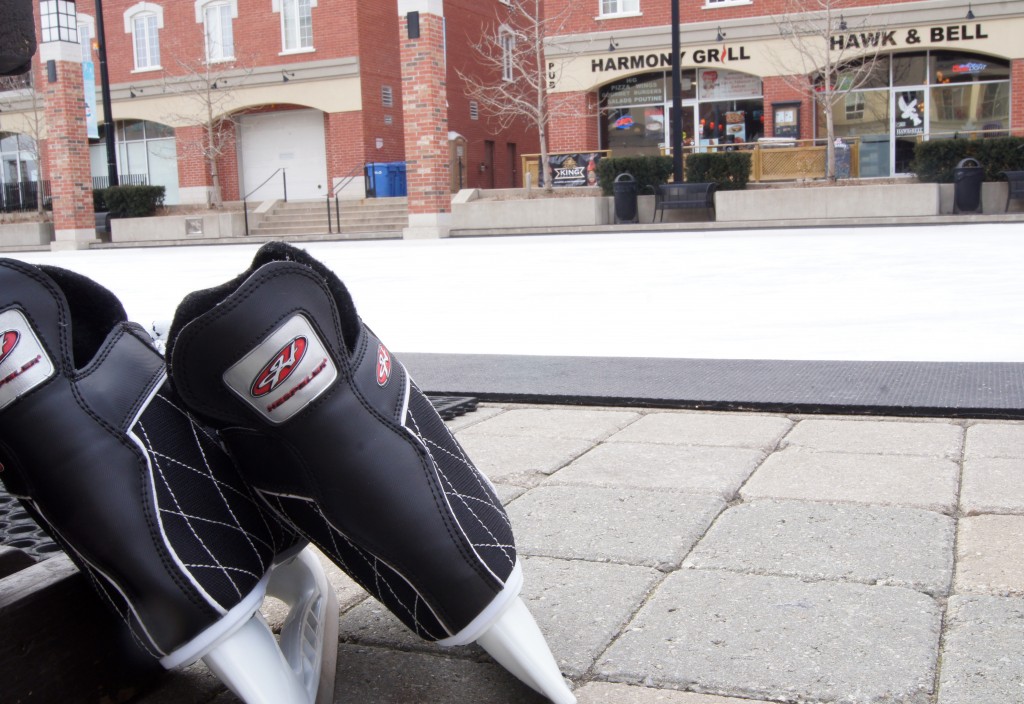
Every year when winter rolls around and the snow begins to fall, many North American hockey fans look forward to one thing: skating on the frozen pond you discovered in the outskirts of the neighbourhood, or on a local outdoor rink. The outdoor rink is iconic for many Canadians, no more so than in Brantford where Wayne Gretzky would spend hours upon hours skating around on his backyard rink.
However, Laurier Geography and Environmental Studies associate professor, Robert McLeman, along with fellow associate professor, Colin Robertson, and Master of Science student Haydn Lawrence have created RinkWatch. The website is an easy way for outdoor rink skaters and owners alike to help keep track of the effects of climate change.
McLeman and Robertson are both involved in environmental science and promote getting families and regular people to take part in the research they do and there is no better way to get Canadians involved in environmental research than through hockey and their outdoor rink.
“We [McLeman and Robertson] wanted to use this as one, a way to track winter weather trends and two, to help people get connected to our research from their own backyard,” said McLeman.
Those who want to get involved simply have sign up on their website, RinkWatch.org. Each day you tick a box stating whether or not you did or could skate on your rink on that particular day.
In the first week and a half of launching the website, there were more than 350 backyard and community rinks taking part in the study – from up north in the Yukon to out east in Nova Scotia and P.E.I. A wide range of Americans have also registered their rinks.
“It’s changed from a research study almost into a cultural phenomenon,” said McLeman.
Participants want to take it to the next level, asking for a user forum, the ability to input ice rink data from years past.
“We’re trying to beat the user demand and keep up with them,” said McLeman.
McLeman and his team could never have imagined such a great response, but now there is a solid possibility that their data may be published in the future.
“If we can get people coming back winter after winter, in a couple years there might be some hard scientific data to it,” said McLeman.
It just goes to show what kind of good some hockey diehards can do when there is reason to unite them. Outdoor rinks are hallowed grounds in which you pretend you’re scoring the game-winning goal in game seven of the Stanley Cup final. Who knew they could also be the site for some substantial environmental science?
You can join the study at www.rinkwatch.org, be sure to like Rink Watch’s Facebook page and follow them on Twitter at @RinkWatchOrg



